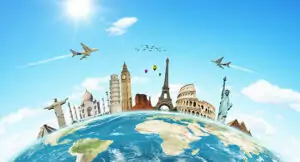By Kate Hoyland

✅ AI Essay Writer ✅ AI Detector ✅ Plagchecker ✅ Paraphraser
✅ Summarizer ✅ Citation Generator
What is it like to be taken over by a Chinese firm? Executives, speaking to The Economist tell of hungry decisiveness, followed by strange opacity: who is in charge, what really do they want? When Aung San Suu Kyi, Burma’s dignified opposition leader, was released from house arrest after 15 odd years, on and off, she spoke of using a mobile phone for the very first time (‘It felt very inadequate to me;, she said: ‘It was so small’). Her ignorance of one of the basic tools of modern life gave a small insight into her long and unjust imprisonment.
Therein two views of Asia. The anxious: ‘They are predatory—what do they want’? And the superior: ‘They do what we would not’ (never mind cases of unjust imprisonment closer to home). As any tourist will tell you, who has signed up to wander the foothills of the Himalayas, or trek through villages in Northern Thailand to see ‘how they really live’, Asia (or ‘The East’) exemplifies the unknown, a place where—by rubbing up against the curious and the unfamiliar—we might discover something about ourselves.
Like latter day Marco Polos, we are in love with difference. ‘Let me tell you’, he fizzes, ‘the truly amazing facts about the greatest lord of the Lords of all the Tartars, the right noble Great Khan whose name is Kubilai….’ Chasing the exotic, we are secure in the belief that it can always be found elsewhere (we are our own reference point—there is nothing exotic about known and knowable us). At the root of the security, is an unthinking arrogance. We are the ones to do the discovering: our vantage point is privileged because history has made it so. Unequal wealth, colonialism, and all its crimes have conferred a sense that it is we who explore, we who conquer and own.
But the balance of power is shifting. It is all about power after all. Marco Polo—the world’s first travel writer—understood that. He was a merchant, first, and the riches he describes with such relish were all there to be traded, or taken: ‘The province produces plenty of camlets and other cloths of gold, silk, and fustian, and many sorts of spice that were never seen in our country…’
Buy a world map in China, and China (the Middle Kingdom) is in the centre; not ragged islands on the edges of Europe, fringed by a small sea. We have not come to terms with Asia’s rise, and can have no conception of what it means for us (beyond, perhaps, a nagging anxiety that it can’t be good). As power shifts to the twin giants of China and India, we can only realise we are small, and what we think might not matter very much.
Odd, then, that our perceptions of Asia have changed so little (China: kung fu movies, cheap electricals; India: the Taj Mahal, yoga, call centres). The political shorthand is equally crude: when China is the news, human rights abuses are reported; India: border wars, or nuclear ambition. If economic success is described, it is in a tone of worry, not admiration. Perhaps most curious is how little Asia is mentioned at all.
This will change, inevitably. Soon, we will be the objects of curiosity; the observer is fast becoming the observed. We will grow used to our relative insignificance. What do those Chinese executives want? We had better learn fast. We need to adapt to a different world view, one in which we are no longer in the centre of the map.
Kate Hoyland is the author of The Icarus Diaries, a literary thriller. For many years, she was a producer at the BBC World Service, specialising in Asian and international news. As a journalist, she has worked across Asia—from Bangkok, to Beijing, to Seoul—and now lives with her young son in London, where she divides her time between writing, counselling, and training for the BBC.
—————
Written under a Creative Commons License, with edits: https://creativecommons.org/licenses/by/1.0/
Follow us on Reddit for more insights and updates.





Comments (0)
Welcome to A*Help comments!
We’re all about debate and discussion at A*Help.
We value the diverse opinions of users, so you may find points of view that you don’t agree with. And that’s cool. However, there are certain things we’re not OK with: attempts to manipulate our data in any way, for example, or the posting of discriminative, offensive, hateful, or disparaging material.